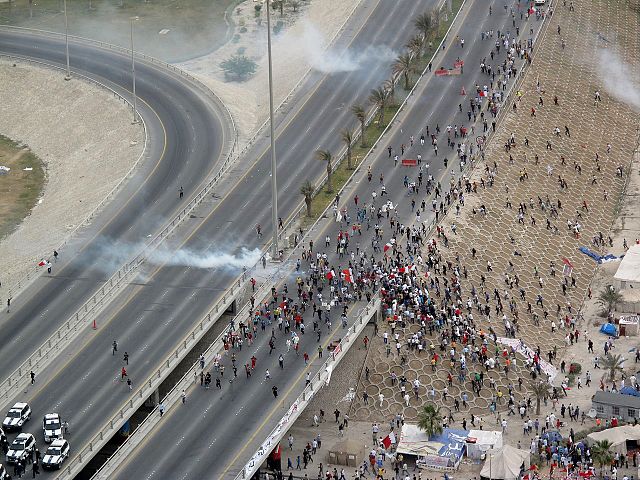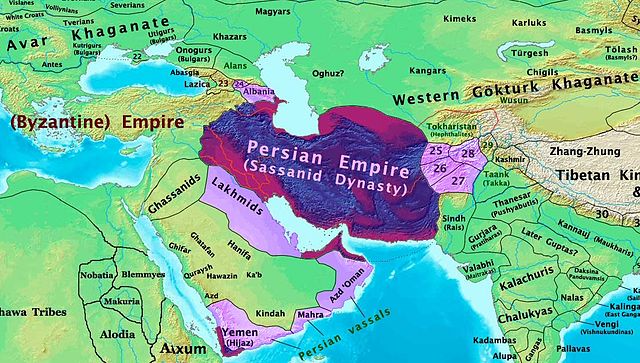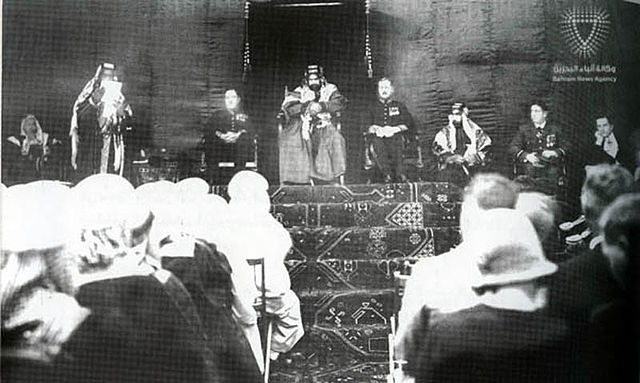The House of Khalifa is the ruling family of the Kingdom of Bahrain. The Al Khalifas profess Sunni Islam and belong to the Anizah tribe. Some members of this tribe joined the Utub alliance which migrated from Najd in central Arabia to Kuwait, then ruled all of Qatar, more specifically Al Zubarah, which they built and ruled over before settling in Bahrain in the early 17th century. The current head of the family is Hamad bin Isa Al Khalifa, who became the Emir of Bahrain in 1999 and proclaimed himself King of Bahrain in 2002, in fact becoming a constitutional monarch.
Image: 2011 Bahraini uprising March (35)
Image: 2011 Bahraini uprising March (82)
Image: 2011 Bahraini uprising March (98)
Image: 2011 Bahraini uprising March (103)
Bahrain, officially the Kingdom of Bahrain, is an island country in West Asia. It is situated on the Persian Gulf, and comprises a small archipelago made up of 50 natural islands and an additional 33 artificial islands, centered on Bahrain Island which makes up around 83 percent of the country's landmass. Bahrain is situated between Qatar and the northeastern coast of Saudi Arabia, to which it is connected by the King Fahd Causeway. The population of Bahrain is 1,501,635 as of May 14, 2023, based on elaborations of the United Nations data, of whom 712,362 are Bahraini nationals. Bahrain spans some 760 square kilometres (290 sq mi), and is the third-smallest nation in Asia after the Maldives and Singapore. The capital and largest city is Manama.
The Persian Empire in the Sassanid era on the eve of the Arab conquest, c. 600 AD.
The Portuguese Fort of Barém, built by the Portuguese Empire while it ruled Bahrain from 1521 to 1602.
This photograph shows the coronation of Hamad bin Isa Al Khalifa as the Hakim of Bahrain in February 1933.
Manama Harbour, c. 1870








